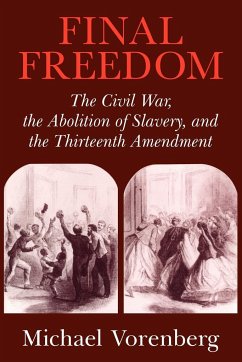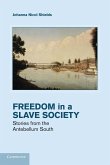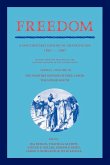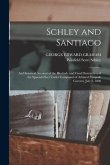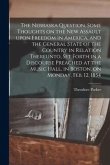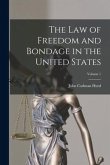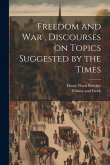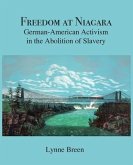Short description/annotation
Focusing on the Thirteenth Amendment, this book examines emancipation after the Emancipation Proclamation of 1863.
Main description
This book examines emancipation after the Emancipation Proclamation of 1863. Focusing on the making and meaning of the Thirteenth Amendment, Final Freedom looks at the struggle among legal thinkers, politicians, and ordinary Americans in the North and the border states to find a way to abolish slavery that would overcome the inadequacies of the Emancipation Proclamation. The book tells the dramatic story of the creation of a constitutional amendment and reveals an unprecedented transformation in American race relations, politics, and constitutional thought. Using a wide array of archival and published sources, Professor Vorenberg argues that the crucial consideration of emancipation occurred after, not before, the Emancipation Proclamation; that the debate over final freedom was shaped by a level of volatility in party politics underestimated by prior historians; and that the abolition of slavery by constitutional amendment represented a novel method of reform that transformed attitudes toward the Constitution.
Table of contents:
Introduction; 1. Slavery's constitution; 2. Freedom's constitution; 3. Facing freedom; 4. Debating freedom: Congress and the Thirteenth Amendment; 5. The key note of freedom: presidential politics and the Thirteenth Amendment; 6. The war within a war: emancipation and the election of 1864; 7. A King's cure: adopting the Thirteenth Amendment; 8. The contested legacy of constitutional freedom.
Hinweis: Dieser Artikel kann nur an eine deutsche Lieferadresse ausgeliefert werden.
Focusing on the Thirteenth Amendment, this book examines emancipation after the Emancipation Proclamation of 1863.
Main description
This book examines emancipation after the Emancipation Proclamation of 1863. Focusing on the making and meaning of the Thirteenth Amendment, Final Freedom looks at the struggle among legal thinkers, politicians, and ordinary Americans in the North and the border states to find a way to abolish slavery that would overcome the inadequacies of the Emancipation Proclamation. The book tells the dramatic story of the creation of a constitutional amendment and reveals an unprecedented transformation in American race relations, politics, and constitutional thought. Using a wide array of archival and published sources, Professor Vorenberg argues that the crucial consideration of emancipation occurred after, not before, the Emancipation Proclamation; that the debate over final freedom was shaped by a level of volatility in party politics underestimated by prior historians; and that the abolition of slavery by constitutional amendment represented a novel method of reform that transformed attitudes toward the Constitution.
Table of contents:
Introduction; 1. Slavery's constitution; 2. Freedom's constitution; 3. Facing freedom; 4. Debating freedom: Congress and the Thirteenth Amendment; 5. The key note of freedom: presidential politics and the Thirteenth Amendment; 6. The war within a war: emancipation and the election of 1864; 7. A King's cure: adopting the Thirteenth Amendment; 8. The contested legacy of constitutional freedom.
Hinweis: Dieser Artikel kann nur an eine deutsche Lieferadresse ausgeliefert werden.

